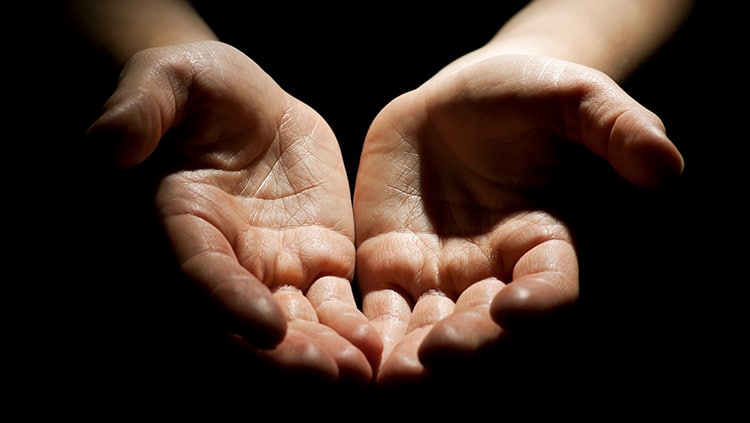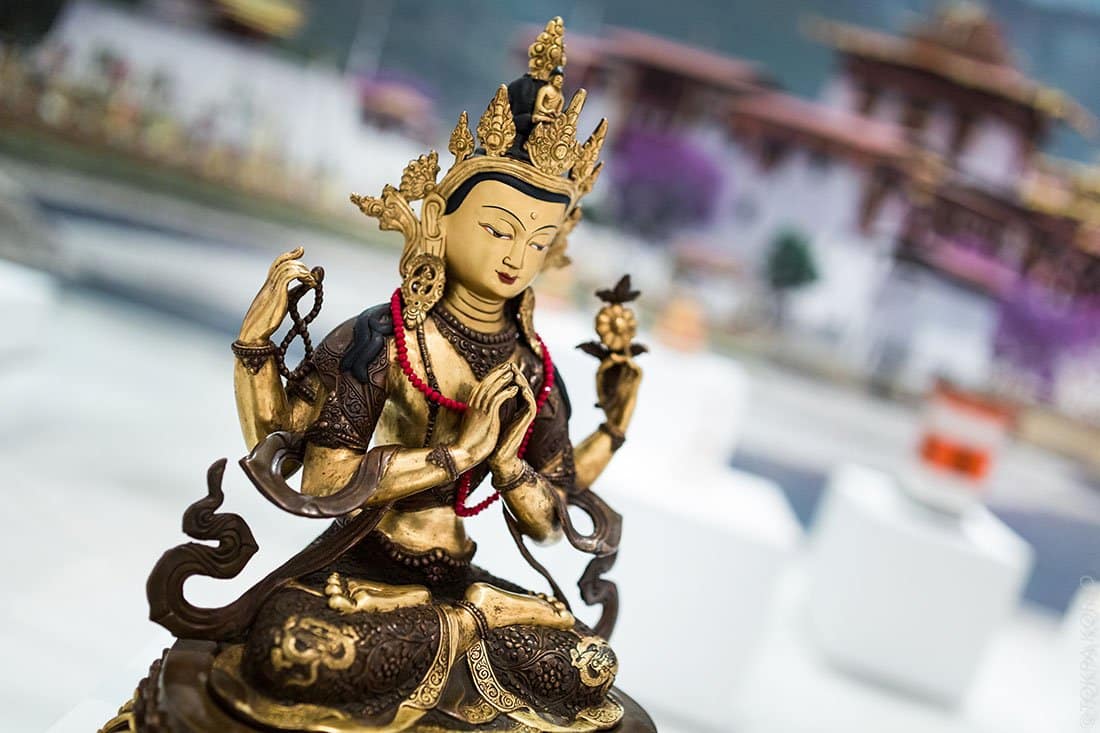Exchanging Oneself for Others
Category: Buddhist Path | Love & Compassion Meditation | Mind Trainer Articles | Recent Meditation Posts

Working for the Benefit of Others Brings Meaning to Our Lives
A core practice of the seven points of mind training, or lojong, is exchanging oneself for others. This practice has many beneficial aspects. To begin with, our general tendency is to cherish ourselves and live a self-centered life. This translates as “whatever I like, I want it for me; whatever I don’t like, I want it to go away and stay away.” But when we practice exchanging ourselves for others, we’re deliberately thinking about other people and trying to put ourselves in their shoes. We can practice this exchange with anyone—friends, loved ones, people we barely know, even people we dislike. We can simply consider someone else and take a moment to wonder, “What was their childhood like? What kind of suffering do they experience? What difficulties might they be going through?” Just thinking about them like this changes our perspective and counters our self-centered tendencies.
I encounter this in my job as a therapist where I have access to other people’s deep suffering. Even if I don’t necessarily warm to every individual the moment we start working together, after listening to them and learning about their childhoods, their sorrows, and their hardships, I find that I’m deeply touched and it’s natural to feel compassion for them. By seeing the world from another’s perspective, we can’t help but experience compassion.
In our culture, it is seldom suggested or taught that we should try to think about others first. More often, society pushes us to be the best, to think about ourselves first, and to win. Yet even if we achieve this, it doesn’t necessarily make us happy. We might consider whether the idea that we’ll be happier if we focus on ourselves first actually makes sense. Shantideva, a great Buddhist master of the past, said that:
“All the happiness in this world arises from wanting others to be happy. All the suffering in this world arises from concerning ourselves with our own happiness.”
We can all experience that having an altruistic mindset brings us joy.
Buddhists acknowledge that self-cherishing and self-clinging cause suffering. The practice of exchanging ourselves for others helps us recognize interconnectedness and develop compassion. As these are the opposite of self-clinging, they are also its antidotes. Moreover, scientific research has determined that two things make people more satisfied in life. One is the altruistic attitude, the desire to help others, and the other is finding one’s purpose. Truly, working for others bring tremendous meaning to life.
In my work, I’ve heard people say that they worry that being concerned with other people’s suffering will cause them to lose themselves in it, or that their empathy might lead them to allow others to take advantage of them. The concern is that this awareness of what others are going through will keep us from setting healthy boundaries. It’s important to realize that exchanging ourselves with others is not about letting others hurt us! Not at all—that would not be beneficial for us or for them. Rather, it’s about training the mind to do the opposite of what it usually does, which is thinking about ourselves first.
Considering others brings more harmony into our relationships and our lives. It also helps dissolve the illusion of our being separate from everyone else. Why? Because the practice of exchanging self for others leads to a sense of interconnectedness, of not being isolated. When I have my breakfast in the morning, for example, I can start by thinking about everyone and everything that was involved in making it possible for me to enjoy my avocado and fried egg. This awareness puts me in a humbler, more appreciative place.
We can begin practicing the exchange of self with others in everyday moments of life by simply reflecting and contemplating what it would be like to be another person. As I mentioned earlier, this is a good way to begin cultivating compassion. When we fully understand the other person’s experience of reality, naturally we will feel compassion, naturally we will want their suffering to stop. This is a contemplation that we can do anytime—for instance, if we’re taking the train or subway we can ask ourselves, what if I was that person over there? What would my life be like?
We can practice this with people we’re close to as well. In our closest relationships, when there’s a conflict, our usual way of functioning is to want to be right and win, and to want the other person to be wrong and lose. But if we manage to put ourselves in the other person’s shoes, then maybe we can see things from a different perspective and be more open to the possibility of a win-win. Maybe we can admit that our partner has the right to their own feelings and opinions. With such a mindset, we will live a more harmonious life with fewer arguments. It also helps us resolve conflicts, which are part and parcel of human interactions. By exchanging ourselves with others, we move towards a place of understanding, of finding flow and ease in our relationships.
If we want to take the practice a step farther, we can not only see through someone else’s eyes and realize how hard their situation is, but we can even wish to receive their pain so they may be relieved of it. It doesn’t mean that we will suffer the sorrow of the whole world: once again, we’re training the mind. Instead of always wanting the biggest slice of the pie for ourselves, we want others to have and enjoy it. Our wish is to be able to relieve their pain, their sorrow. If this requires taking their difficulties on ourselves, we wouldn’t hesitate. With practice, this desire becomes very deep and sincere; we are able to connect with the feeling that we would do anything to keep others from suffering.
It’s completely the opposite of what we usually want and how we usually act. Remember, it’s not that we are literally responsible for saving the whole world. Rather, we are training the mind by not only wishing that others’ suffering be relieved, but also by being willing to take it on ourselves. This is the practice of someone who is truly dedicated to becoming a wholesome person, someone who is thoroughly committed to the bodhisattva path.








